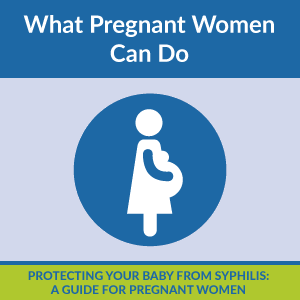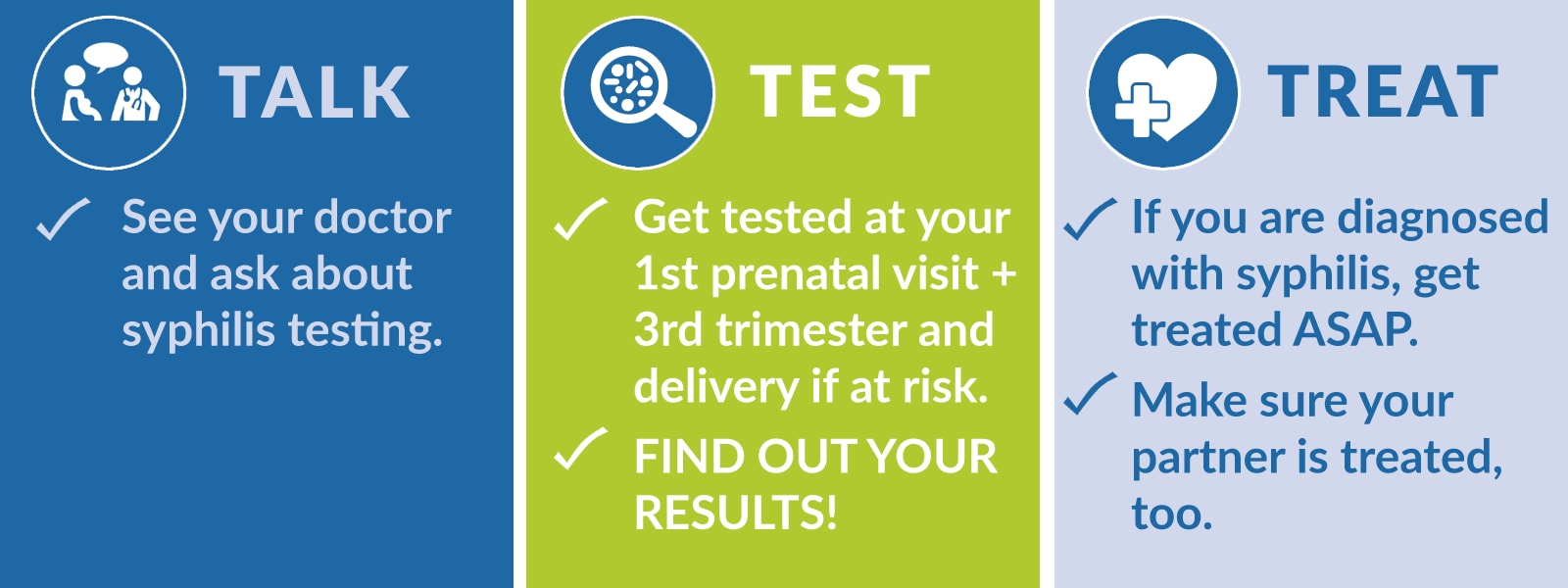What Pregnant Women Can Do

As a soon-to-be mom, you are constantly being reminded of the things you should or shouldn’t do and what you should and shouldn’t worry about when it comes to protecting the health of your developing baby. While pregnancy fears are normal, the best way to handle them is by being informed and prepared. If you’ve already had your first prenatal visit, your doctor likely discussed syphilis testing with you. If not, read on to find out the most important facts about this disease, how it can affect your baby, and actions you can take to improve your chances of a healthy pregnancy and baby.
WHAT IS IT?
Syphilis is a sexually transmitted disease that can cause very serious health problems if not treated. However, it is simple to prevent and can be cured with the antibiotic penicillin. When syphilis is not treated, it can eventually spread to the brain and nervous system or to the eye. This can cause problems like hearing loss, stroke, and blindness. Having syphilis can also increase a person’s risk for getting HIV or giving it to others. Syphilis can also be passed on to an unborn baby during pregnancy.
Congenital syphilis is the disease that occurs when a mother with syphilis passes the infection on to her baby during pregnancy.
Babies born to women with untreated syphilis may be stillborn (a baby born dead) or die from the infection as a newborn. Infants born with congenital syphilis might have health problems like skin rashes, yellowing of the skin or whites of the eyes (jaundice), enlarged liver and spleen, or severe anemia (low blood count). Untreated babies that survive the newborn period can develop problems later on. They may be developmentally delayed or have seizures.
HOW CONCERNED DO I TRULY NEED TO BE?
Congenital syphilis should be on your radar because there has been a sharp increase in the number of babies born with the disease in the United States. In fact, cases of congenital syphilis have more than tripled in recent years. Public health professionals across the country are very concerned about this growing number of congenital syphilis cases.

WHAT CAN I DO TO MAKE SURE MY BABY DOESN’T GET CONGENITAL SYPHILIS?
If you are pregnant, here’s what you can do:
- Go to Your Doctor. If you think you may be pregnant, see a health care provider as soon as possible to be sure that you and your baby are healthy during your pregnancy. Prenatal care is important for every pregnancy. Even if you’ve been pregnant before, it’s important to ensure that THIS pregnancy is healthy. All pregnant women should be tested for syphilis, ideally at their first doctor visit. Make sure to ask your doctor about getting tested at your first visit.
- Ask for the Results of Your Syphilis Test. And if you test positive for syphilis during pregnancy, be sure to get treatment right away. Your doctor can treat you with medicine that is safe for both you and your unborn baby.
- Complete Follow-Up Visits with Your Doctor. Continue to visit your doctor regularly during your pregnancy to be sure that you and your baby stay healthy. If you learn that one of your sexual partners has or may have syphilis, tell your doctor right away so you and your partner can be treated, and your baby can be protected. Your doctor may need to retest you for syphilis at the beginning of your third trimester and at delivery, depending on how common syphilis infections are in the area that you live in. Ask your doctor if you should be retested during your pregnancy and at delivery.
To learn more about CS, visit CDC’s Congenital Syphilis Fact Sheet.
CDC is working with other federal agencies and national partners to reduce the number of women and their babies who are infected with syphilis.
What CDC Will Do
CDC is committed to protecting the health of the nation’s babies. Here is what CDC will do to reduce the numbers of women and their babies who are infected with syphilis:
- Work to improve CS data through an enhanced CS surveillance system to capture stillbirths, infant morbidity, and cases prevented.
- Investigate all CS cases in states to identify missed opportunities and improve services.
- Develop tools and evaluate high-impact prevention services, such as syphilis screening; timely treatment; partner services; and linkage to contraceptive counseling, behavioral health, and pregnancy case management programs.
- Develop CS prevention guidelines for health care providers and health departments.
- Identify and share best practices, such as infant morbidity review boards, assessment approaches to identify missed opportunities, and implementation of system level changes.
- Support health care providers to implement recommended syphilis screening and treatment of pregnant women and women of reproductive age through training, guidelines, tools, and resources.